Top stories in Azerbaijan, Armenia, and Georgia from 8-12 September, 2025
-
Friday, September 12, Georgia. Two leaders of the United National Movement arrested
● The State Security Service arrested two leaders of the opposition party United National Movement — Levan Khabeishvili (pictured below) and Murtaz Zodelava. Khabeishvili was detained on charges of publicly offering bribes to officials, while Zodelava (who served as prosecutor general in 2009–2010 under President Saakashvili) was charged with resisting law enforcement officers. Read more here
● “Full solidarity with the detainees. This is political persecution that has become routine in our country,” said Elena Khoshtaria, one of the leaders of the Coalition for Change.
● “October 4 (municipal election day) will be the day of our victory,” writes Levan Khabeishvili from pre-trial detention. “Bidzina and this regime have announced complete capitulation.”
● The EU Delegation to Georgia expressed solidarity with German Ambassador Peter Fischer, who has been targeted by a campaign from Georgian Dream leaders accusing him of “supporting violence at protests.” The Delegation also said the EU condemns disinformation about its role and activities in Georgia. Read more here
● Prime Minister Irakli Kobakhidze of Georgian Dream declared the government’s “sincere readiness to restart the strategic partnership with the United States from scratch, with a clear roadmap.” He added: “We need an official position from the U.S. on our proposal. We are ready to discuss any issue. But so far Washington remains silent.” According to him, “the future of U.S.–Georgia relations will depend on who prevails — the Trump administration or the ‘deep state.’”
● Kobakhidze again defended the “transparency law” (on foreign agents), saying it “had to be adopted because Georgia constantly faces attempts at revolution.” He reminded that “the current U.S. administration also confirmed that Washington’s resources were used to organize revolutions in various countries.”
● Irakli Kobakhidze: “Protesters outside the Tbilisi campaign office of Mayor Kakha Kaladze are financed by foreign intelligence services — some knowingly, some without realizing it, but all directly funded from abroad. This is a tragic phenomenon. Protesters need to be rescued — some need medical treatment, others psychotherapy.”
● Kobakhidze said that ODIHR/OSCE had “plenty of time, nearly a month, to organize an observer mission for the October 4 municipal elections,” but “after being attacked over their assessment of the 2024 parliamentary elections, they no longer wanted to engage.” Earlier, ODIHR/OSCE representatives said they could not send a mission because the invitation came too late.
● Former Defense Minister Juansher Burchuladze (in office 2021–2024) has been arrested on charges of abuse of power involving illicit large-scale profit. Read more here
● On Burchuladze’s arrest, Kobakhidze said: “The fight against corruption is one of our priorities. Our goal is to rank among Europe’s top three countries for low corruption. In just one year, state enterprises saved 700 million lari (about $260 million). This includes energy companies, Georgian Railways, and other state firms. It’s important to expose past crimes for deterrence. If impunity prevails, temptation grows. Law enforcement, prosecutors, and courts will handle the rest. What matters is the rule of law and justice.”
● Transparency International–Georgia published an investigation showing that in 2023 officials received gifts worth 22 million lari (about $8 million). Most gifts were in cash. Officials also declared 47 real estate properties (33 houses, 14 land plots), 21 cars, and 6 weapons as gifts.
By law, Georgian officials cannot accept gifts exceeding 5% of their annual income or that may influence their duties, though relatives are exempt. TI called on the Anti-Corruption Bureau to examine every large “gift” to ensure it does not conceal illicit enrichment.
● The State Security Service announced the arrest of two Ukrainian citizens. Their car, entering Georgia, was found to contain “2.4 kg of RDX explosive hidden in carefully disguised compartments.”

-
Friday, September 12, Azerbaijan. The OSCE Parliamentary Assembly is ready to serve as a platform for dialogue between Armenia and Azerbaijan
● Azerbaijan and Armenia are benefiting from the expected decline in regional foreign policy risks, according to a new analytical review by the Dutch banking group ING. Azerbaijan’s economy is projected to grow at a more moderate pace in 2025 compared to last year, despite expansionary fiscal and credit policies. The state budget remains in surplus at 2.6% of GDP, the manat stays stably pegged at 1.7 per dollar, and this is expected to continue through 2025. For Armenia’s economy, ING analysts note that the peace process with Azerbaijan remains decisive, and its economic effect largely depends on the practical implementation of agreements. Armenia’s GDP grew by 5.6% in the first half of 2025, but the widening fiscal deficit (4% of GDP) and trade deficit (about 15% of GDP) highlight economic vulnerabilities.
● “The Zangezur line is of crucial importance not only for ensuring connectivity between Armenia and Turkey, but also with Central Asia and the Turkic states,” said Turkey’s special envoy for normalization with Armenia, Serdar Kılıç. He added: “As instructed by the president of Turkey, we want to open this line as soon as possible and contribute to the economies of both countries, especially to the development of Iğdır and Kars.”
In Azerbaijan, the route through Armenia to the Nakhchivan exclave and further to Turkey is called the “Zangezur Corridor.” At the August 8 summit of Armenian and Azerbaijani leaders in Washington, attended by Donald Trump, an agreement was reached to open this transit road with U.S. company involvement. The road was named the “Trump Route” (TRIPP).
● The OSCE Parliamentary Assembly is ready to serve as a platform for dialogue between Armenia and Azerbaijan, President of the OSCE PA Pere Joan Pons Sampietro said in an interview with the pro-government outlet Report. “I have had many conversations with colleagues from Azerbaijan and Armenia, and I always emphasize the need to look forward. This will be one of the messages I convey to the Permanent Council in Vienna. At the upcoming autumn session in Istanbul, we will also highlight dialogue between Armenia and Azerbaijan and act as a platform for it. We will not miss the opportunity that has arisen after the signing of the joint declaration in Washington,” he said.
● Azerbaijani media and social networks are discussing remarks by Armenian parliament speaker Alen Simonyan on possible economic cooperation with Azerbaijan after the signing of a peace agreement between the two countries. “Azerbaijani goods will be sold in Armenia, Armenian goods in Azerbaijan. We will buy cheaper fuel,” he told journalists.
● Political analyst Bahruz Samedov, sentenced to 15 years in prison for treason, has ended his hunger strike, his relatives reported. They said that on September 11, Samedov called his grandmother, Zibeyda Osmanova, and told her his health was deteriorating and doctors were examining him. “Grandmother begged Bahruz to stop the hunger strike, saying she could not bear it. Bahruz ended the strike at her request,” Radio Free Europe’s Azerbaijani service reported, noting it was unable to confirm the information with the penitentiary service. Samedov had gone on hunger strike earlier in September to protest the rejection of his appeal. In June, it was also reported that he had briefly gone on hunger strike against his arrest, which he also ended at his grandmother’s urging.
● In the first eight months of this year, 832 participants of the Second Karabakh War received free equipment to start their own businesses under a state self-employment program. Thanks to the support, veterans launched businesses in auto repair, dry cleaning, delivery services, and other sectors. In total, more than 10,000 war participants have received equipment to develop small businesses under the program, the Ministry of Labor and Social Protection of the Population reported.
● The trial of a group of former leaders of the self-proclaimed Nagorno-Karabakh Republic (NKR) continued. They are accused of war crimes, terrorism, attempted overthrow of the government, and other serious offenses. According to the state agency AZERTAC, documents were reviewed showing evidence of abductions and killings of Azerbaijani civilians during and before the First Karabakh War in the early 1990s. The trial will continue today, September 12.
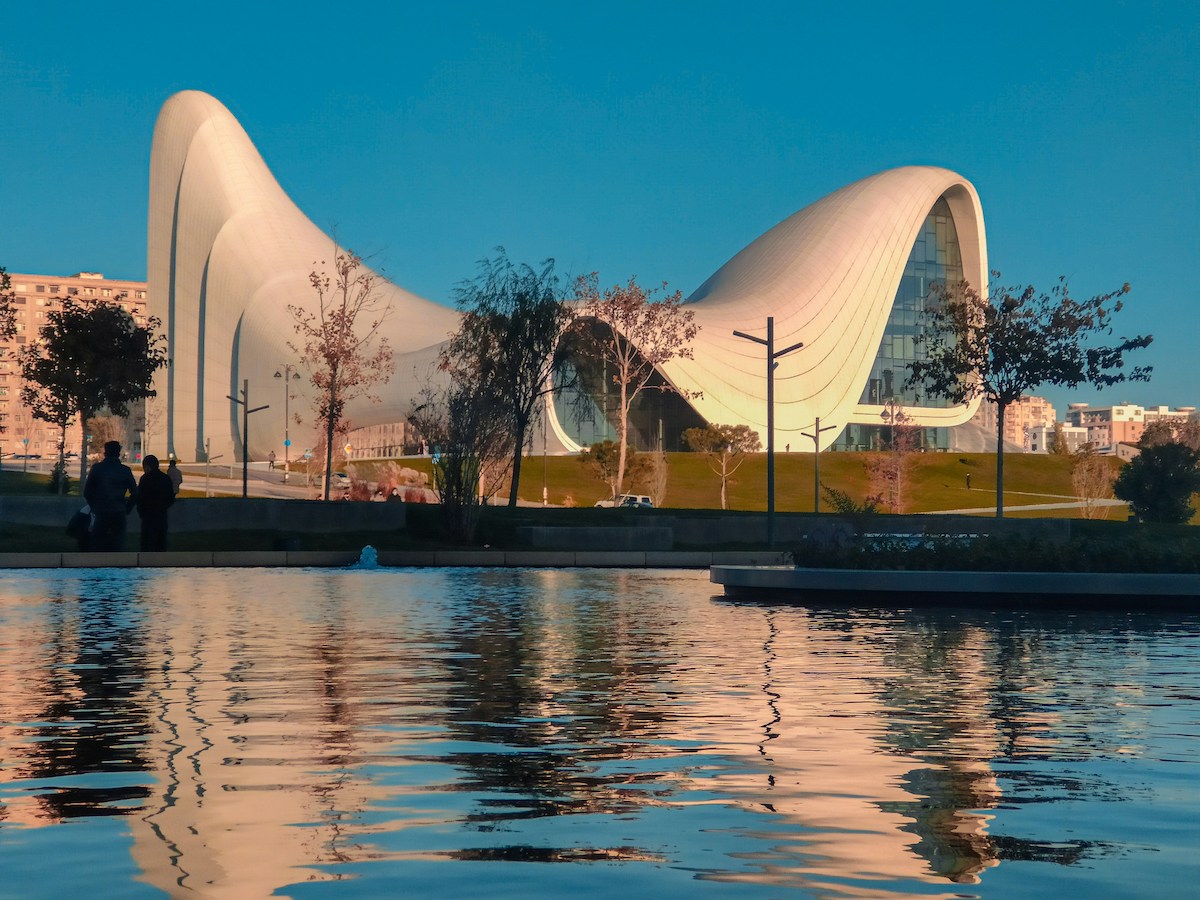
-
Friday, September 12, Armenia. The U.S. will provide Armenia with $145 million in aid to implement the 'Trump Route' project
● Armenia is not considering the withdrawal of the Russian military base from Gyumri, Speaker of the National Assembly Alen Simonyan reiterated at a briefing. He reminded that Prime Minister Nikol Pashinyan will soon travel to Russia to meet with Vladimir Putin.
● President Vahagn Khachaturyan: “Armenia now has completely different relations with Russia – partnership-based. Russia’s attitude toward Armenia is no longer that of an elder brother to a younger one, but simply as a partner. This is what we have been striving for over the past four years.” He made the statement in an interview with RTVI.
● The United States will provide Armenia with $145 million in assistance to implement the ‘Trump Route for International Peace and Prosperity’ (TRIPP) initiative. The announcement was made in Yerevan by Brendan Henrehan, Director of the U.S. State Department’s Bureau of European and Eurasian Affairs, during a meeting with Armenian Deputy Prime Minister Mher Grigoryan. “This is the first tranche of funding under the initiative. The funds will support investments in trade, infrastructure, critical mineral supply chains, and cross-border security,” Henrehan said.
The agreement to open a transit route from Azerbaijan through Armenia to the Azerbaijani exclave of Nakhchivan and on to Turkey – with the involvement of U.S. companies – was reached at the historic summit of Armenian and Azerbaijani leaders in Washington on August 8, attended by Donald Trump. The road was named the “Trump Route” (TRIPP).
● Turkey’s special representative for the normalization process with Armenia, Serdar Kılıç, said both Yerevan and Ankara view the opening of the border positively. “Certain technical work needs to be done, but otherwise we have no issues with intentions. Together with Armenia’s special representative, we are carrying out specific work. We will explore all opportunities and determine what can be done for the economic life of both countries, especially the border region.”
● Kılıç made these statements while visiting Turkey’s border province of Iğdır. Anadolu Agency reported that Kılıç and his delegation were heading to Armenia through the Alican border crossing in Iğdır, where they will hold a series of meetings in Yerevan.
● The governor of Iğdır, Erkan Turan, told journalists that locals welcome the prospect of opening the border with Armenia. He reminded that recently the foundation was laid for the 124-kilometer Dilucu–Kars railway, which will connect to the TRIPP route.
● “Zangezur Transport Hub” instead of “Zangezur Corridor”—Armenia’s first president Levon Ter-Petrosyan suggested this new term for the TRIPP section passing through Armenia’s Syunik region. He stated that “Armenia is fully capable of independently guaranteeing the security of this route.”
● Reciprocal visits of Armenian and Azerbaijani delegations took place on September 5 in border areas, the office of Armenia’s deputy prime minister reported. Armenian officials visited the southern part of Syunik province, while the Azerbaijani side was in southern Zangilan district.
● On September 22–23, Armenia will host the NATO Parliamentary Assembly, with around 160 delegates from NATO member and partner states expected to attend.
● Yerevan will also host the Parliamentary Assembly of the Eastern Partnership this fall.
● A large-scale inventory will be carried out at the warehouses of Electric Networks of Armenia, the company announced. Its owner, Russian billionaire Samvel Karapetyan, is under arrest in Yerevan on charges of publicly calling for a seizure of power. The inventory will begin on September 15, covering more than 60 warehouses. The decision was made by temporary manager Romanos Petrosyan, appointed by the state in June as part of the announced nationalization of the company.
● The son of Gyumri mayor Vardan Ghukasyan was detained in a criminal extortion case. “This process is directed against me,” Ghukasyan told journalists, adding that such steps would not break him and that he would fight for his son’s release by all legal means.
● Armenia’s Foreign Intelligence Service will receive its own building. The government will allocate 1.7 billion drams (around $445 million) from its reserve fund. The location was not disclosed, with the decision citing classified information.
● Political circles are discussing a proposal to reduce mandatory military service from two years to 1.5. “This is a well-calculated pre-election move, based on Nikol Pashinyan’s false thesis: ‘look, peace reigns,’” said opposition MP Gegham Manukyan.
● A tornado was recorded over Lake Sevan in Armenia—a rare phenomenon for the area. Footage was published on social media by the country’s chief meteorologist, Gagik Surenyan.
-
Thursday, September 11, Georgia. Hearings in Washington: “From Partner to Problem: Georgia’s Anti-American Turn”
● Hearings titled “From Partner to Problem: Georgia’s Anti-American Turn” were held in Washington, organized by the U.S. Helsinki Commission. The main message was criticism of the ruling Georgian Dream party, accusing it of distancing itself from the U.S. while strengthening ties with Russia, China, and Iran. From Georgia, speakers included the fifth president Salome Zurabishvili and former defense minister Tina Khidasheli, head of the NGO “Civil Idea.” The session was chaired by commission chair Republican Joe Wilson and co-chair Democrat Steve Cohen. Former U.S. ambassadors to Georgia were also present.
● From Joe Wilson’s remarks: “Let me be clear: Georgian Dream does not represent the people of Georgia. The Georgian people have repeatedly expressed their will through mass demonstrations and their own voices — they demand democracy, sovereignty, and a return to a Western future. But today their aspirations are being suppressed by a small group of oligarchs and autocrats, accountable not to the Georgian people, but to the Chinese Communist Party in Beijing, the war criminal Putin in Moscow, and who also spend time with the dictatorial regime in Tehran. These hearings will examine how Georgia is failing to match the ideals of ‘Georgian Dream’ and what this means for America’s security and interests. We will also discuss what tools the U.S. has in response, including the bipartisan ‘Megobari Act,’ to hold Georgian Dream accountable while firmly supporting the Georgian people.”
● From Salome Zurabishvili’s remarks: “The Georgian Dream government is turning away from partnership with the West, and Georgia is falling under the influence of Russia and its allies. Thirty years of cooperation with the U.S., which brought the country freedom and stability, is now under threat due to the government’s policies.”
● From Tina Khidasheli’s remarks: “The Georgian Dream government is systematically undermining Georgia’s national interests and abandoning its strategic partnership with the U.S. Georgia’s security is impossible without U.S. support, and the ‘Middle Corridor’ — the country’s main geopolitical advantage — must remain a path to freedom, not a way to bring Georgia under the influence of Russia, Iran, or China.”
● Parliament Speaker Shalva Papuashvili of Georgian Dream called Zurabishvili’s and Khidasheli’s remarks at the Helsinki Commission ‘an act of treason.’ Prime Minister Irakli Kobakhidze accused the Commission and all participants in the hearing of ties to the “deep state.”
● A 23-year-old woman, Megi Diasamidze (pictured), was arrested for damaging a Georgian Dream campaign banner featuring Tbilisi Mayor Kakha Kaladze, who is running for re-election in the October 4 municipal elections. Charges carry penalties ranging from a fine, community service, or house arrest (6 months to 2 years), to imprisonment (1 to 5 years).
● Two more people were detained for violence against participants in mass protests outside Georgian Dream’s campaign headquarters in Tbilisi. Zaza Mamaladze was charged with group violence after video footage showed him hitting a woman at the September 8 rally. Irakli Buachidze, who attacked a demonstrator with a club, was arrested on the same charges. In the footage, he can be heard telling police: “I’m yours.”
● Germany’s Foreign Ministry condemned “baseless accusations by Speaker Papuashvili.” “We categorically condemn the aggressive rhetoric against Germany’s ambassador by representatives of Georgian Dream. The ambassador represents the position of the federal government in Tbilisi. Germany again urges the Georgian authorities to stop spreading misinformation about the positions and policies of the EU and Germany and to change the current political course. We are concerned that by spreading disinformation and divisive narratives, Papuashvili is actively undermining German-Georgian relations,” read the Foreign Ministry spokesperson’s statement, shared by the German Embassy on Facebook.
Two days earlier, Papuashvili had written on social media that “thugs” allegedly supported by the German ambassador had attacked Georgian Dream’s Tbilisi headquarters.
● Sweden’s Foreign Ministry expressed regret that the OSCE/ODIHR will not be able to conduct full and substantive monitoring of the upcoming local elections in Georgia, as the organization failed to receive an invitation in time. “Recent changes to Georgia’s electoral legislation have undermined the integrity of the process. Pressure on civil society and opposition forces continues in the country. The Georgian authorities must take concrete steps to restore trust in democratic institutions, including ensuring implementation of OSCE election recommendations,” the statement read.
● Deputy Defense Minister Grigol Giorgadze participated in the 30th online meeting on Ukraine in the “Ramstein” format. The group was initiated by the U.S. in April 2022; since 2025, coordination has been led by the UK and Germany. The session was chaired by UK Defense Secretary John Hill and German Defense Minister Boris Pistorius. Ukraine’s Prime Minister Denys Shmyhal addressed the meeting. Defense ministry leaders from NATO member and partner countries, along with senior officials, also took part.
● Large-scale daily pro-European protests continue in Tbilisi. On Wednesday evening, clashes broke out between protesters and police on Freedom Square. Demonstrations have lasted for more than nine months, with demands unchanged: hold new, fair parliamentary elections to ensure a legitimate change of power in the country and release arrested protest participants.
● Detained activist Nino Datashvili addressed the European Union in an open letter, calling for visas to be introduced only for Georgian Dream representatives. “The Georgian people do not deserve isolation from Europe, the cancellation of visa-free travel, or the suspension of European integration,” she wrote.
● Due to Tbilisoba celebrations and related preparations, traffic restrictions will be temporarily imposed on various streets and squares in Tbilisi from September 11 to 23, the mayor’s office announced.

-
Thursday, September 11, Armenia. Nikol Pashinyan: "The OSCE Minsk Group had never been of any use"
● The Ministry of Defense has proposed reducing the term of compulsory military service by six months — from 2 years to 1.5. The draft has been published on the unified legal acts website e-draft.am and is still subject to discussion.
● Prime Minister Nikol Pashinyan stated that the OSCE Minsk Group had never been of any use. In his view, its activities were aimed not at resolving but at deepening the Karabakh conflict. According to him, the Armenian government agreed to the dissolution of the Minsk Group before the signing of a peace agreement with Azerbaijan because the documents signed in Washington on August 8 enshrined the sovereignty, territorial integrity, and inviolability of Armenia’s borders.
● Pashinyan also said that the so-called “Zangezur Corridor” has nothing to do with Armenian territory. He explained that, within the framework of the Washington agreements with Baku, a “Trump Route” could be implemented on Armenian territory, which in the future may be synchronized with Azerbaijan’s roads. However, he stressed that this road cannot be referred to using the term promoted by Baku.
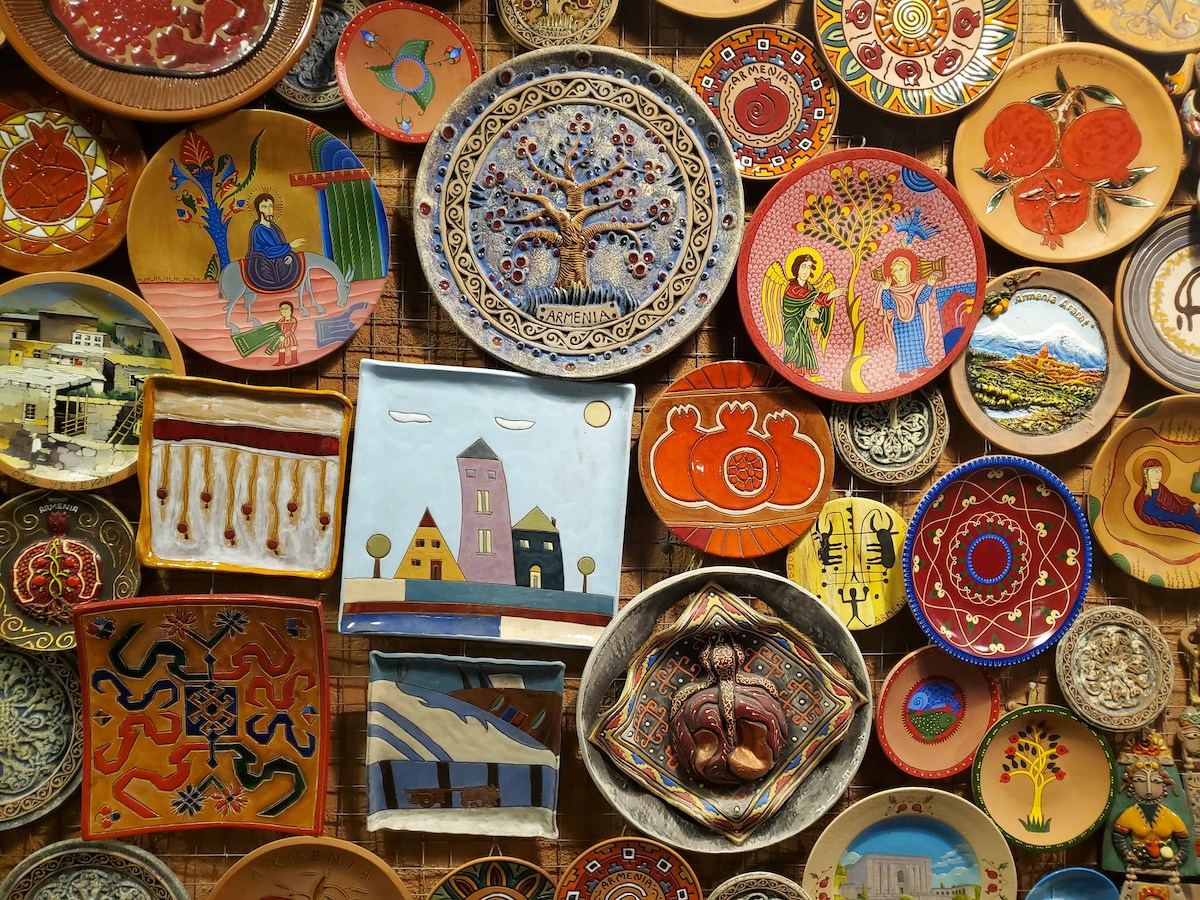
● “The issue of Armenian prisoners in Baku has not yet been fully resolved,” said Foreign Minister Ararat Mirzoyan during a parliamentary Q&A session, commenting on the signing of the Washington documents and the current state of relations with Azerbaijan. He emphasized that achieving peace is a long-term process and that the sides are only at the beginning of the path. “Many issues remain, one of which is the matter of prisoners. I assure you that work on repatriation continues today and will not stop tomorrow either,” he added.
● “There are two ways to impeachment — either like in Nepal or like in France,” said Armenia’s third president, Serzh Sargsyan, when asked how the opposition, represented by his Republican Party, plans to push for Nikol Pashinyan’s resignation. A change of power happens either through force or through parliament, and the second path is preferable, said the former president, who has a reputation as a pro-Russian politician.
● Mandatory translation of films into Armenian may be introduced in Armenia as early as 2026. The format of the translation, as well as its scope—whether for cinemas or television—has not yet been determined, Education, Science, Culture and Sports Minister Zhanna Andreasyan told parliament during hearings on amendments to the Law “On Language.” The requirement had originally been set to take effect in 2030, but the ministry considered that date too distant and is now initiating discussions to move it up to 2026.
-
Thursday, September 11, Azerbaijan. The falling water level of the Caspian Sea is seriously affecting wastewater treatment in Azerbaijan
● Azerbaijan’s Minister of Economy, Mikayil Jabbarov, held discussions in Washington with Brenden, one of the heads of the U.S. State Department’s Bureau of European and Eurasian Affairs, on new aspects of cooperation and investment initiatives. During the visit, Jabbarov also held talks with US EXIM Bank, SpaceX, ExxonMobil, and other companies. Reportedly, a key focus of the discussions was the process of expediting the launch of the “Trump Route” (TRIPP)—a transit corridor running from Azerbaijan to its Nakhchivan exclave through Armenia and onward to Turkey, seen as an important part of the global Middle Corridor transit network.
● Azerbaijan’s Permanent Mission to the UN Office in Geneva delivered a special statement at the 60th session of the UN Human Rights Council, urging member states to support peace efforts in the South Caucasus. The statement highlighted:
- • Following the restoration of territorial integrity, Azerbaijan is carrying out large-scale reconstruction, urban development, and social programs in the liberated regions of Karabakh and East Zangezur.
- • Under the state program “The Great Return,” more than 50,000 former internally displaced persons have already returned to their homes.
- • Significant progress has been achieved in normalizing relations between Azerbaijan and Armenia after the joint peace declaration was signed on August 8 in Washington with the participation of both countries’ leaders and President Trump.
- • One of the key provisions of the declaration is the commitment to open transport and communication links between the two countries, which will benefit not only the region but also a wider geographic space.
- • Azerbaijan and Armenia have initialed an agreement on peace and bilateral relations.
● Armenian Prime Minister Nikol Pashinyan admitted that “there was nothing useful in the activities of the OSCE Minsk Group.” Created in the 1990s under the co-chairmanship of the U.S., France, and Russia, the group facilitated negotiations on the Karabakh conflict. “This activity was aimed at deepening the conflict, turning it into an instrument to keep under control not only Armenia but the whole region,” Pashinyan said in parliament. The Minsk Group was dissolved in early September after the Armenian and Azerbaijani leaders jointly appealed to the OSCE with such an initiative, following the historic Washington summit attended by Donald Trump. Previously, Armenia had insisted that the Minsk Group should be dissolved only after the signing of a peace treaty with Azerbaijan. Pashinyan explained his change of position by pointing out that the documents signed in Washington on August 8 enshrine Armenia’s sovereignty, territorial integrity, and inviolability of borders.
● Pashinyan also stated that Armenia is ready to implement on its territory the 42 km section of the “Trump Route” and synchronize it with Azerbaijan’s infrastructure. At the same time, he acknowledged that Azerbaijan has the right to name its segment of the logistics corridor as it deems appropriate. In Azerbaijan, this transit project is referred to as the “Zangezur Corridor.”
● The falling water level of the Caspian Sea is seriously affecting wastewater treatment in Azerbaijan, as existing systems cannot cope with the volumes. As a result, much of the wastewater is being discharged directly into the Caspian or onto its shores, according to SOCAR representative Medina Hajiyeva. The company sees the solution in installing modular flexible treatment facilities capable of handling different volumes of water. SOCAR also considers it necessary to establish monitoring and early-warning systems in Baku and other major cities to ensure preparedness for emergencies.
These JAMnews photos are unique because they were taken in the village of Buduq in northern Azerbaijan, 50 kilometers from Guba, a place that is almost impossible to reach in winter. The full story is here
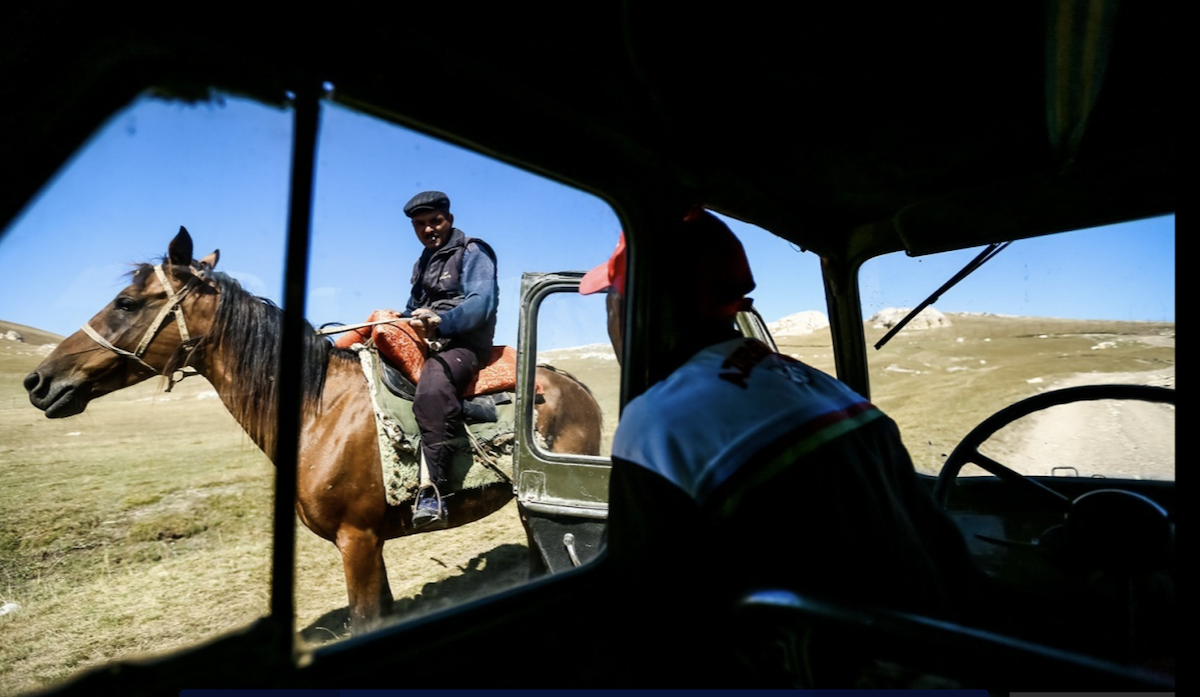
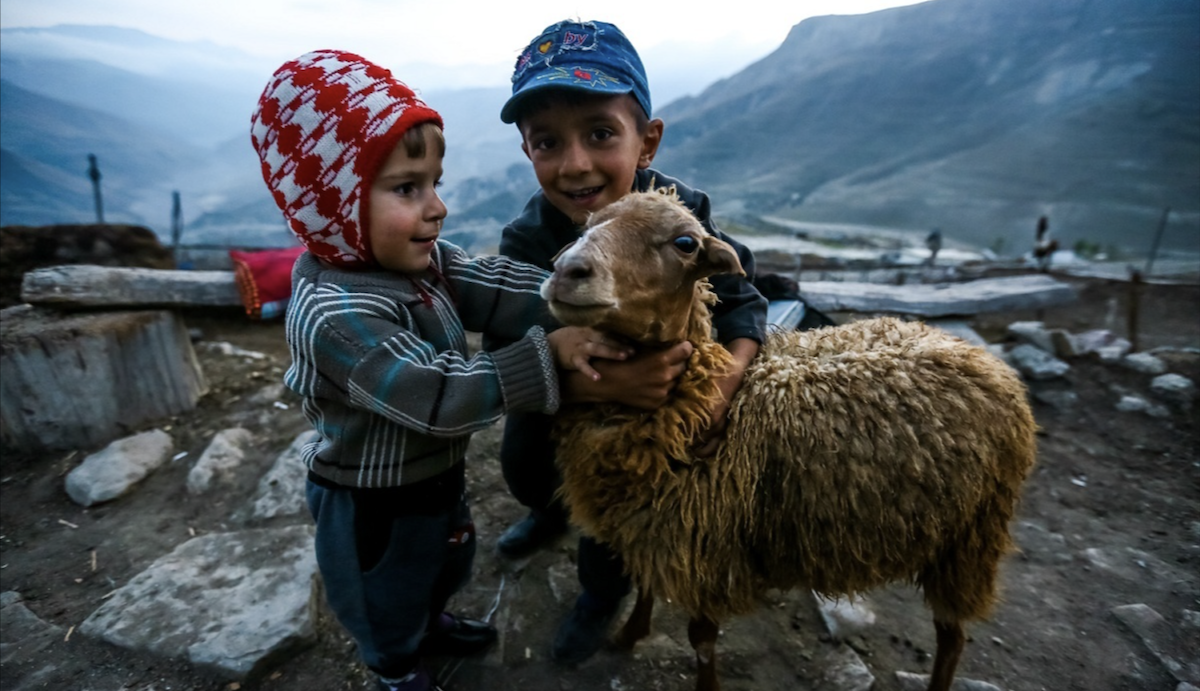
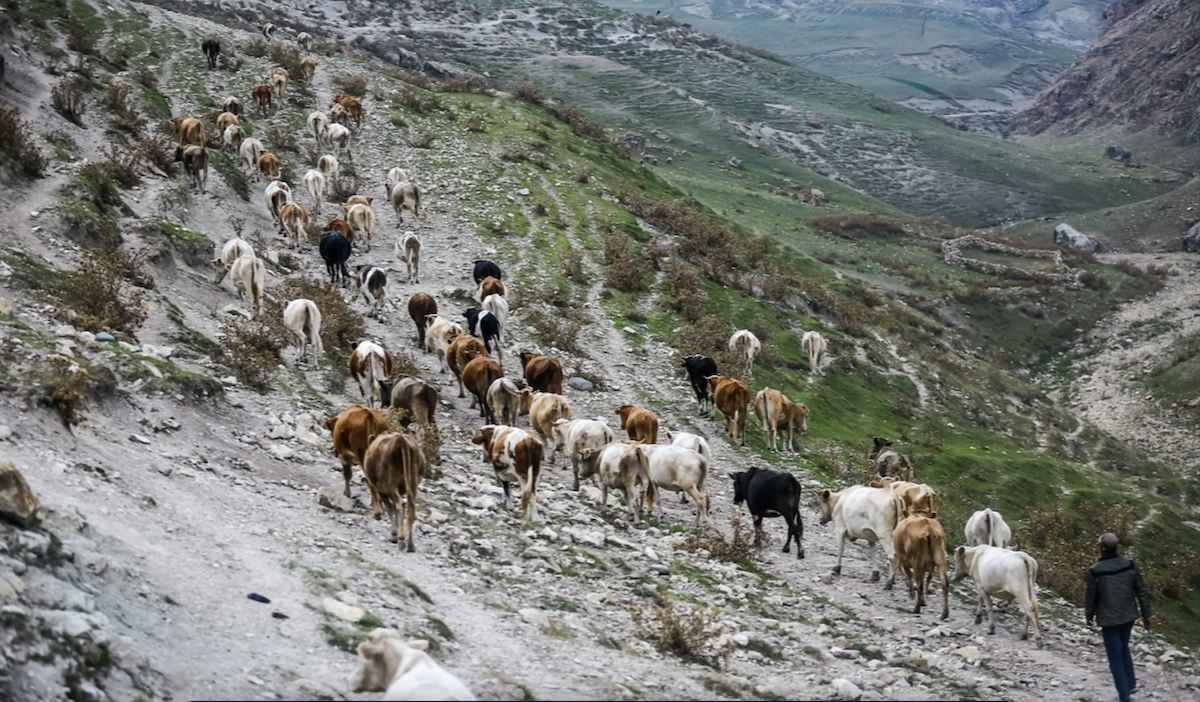
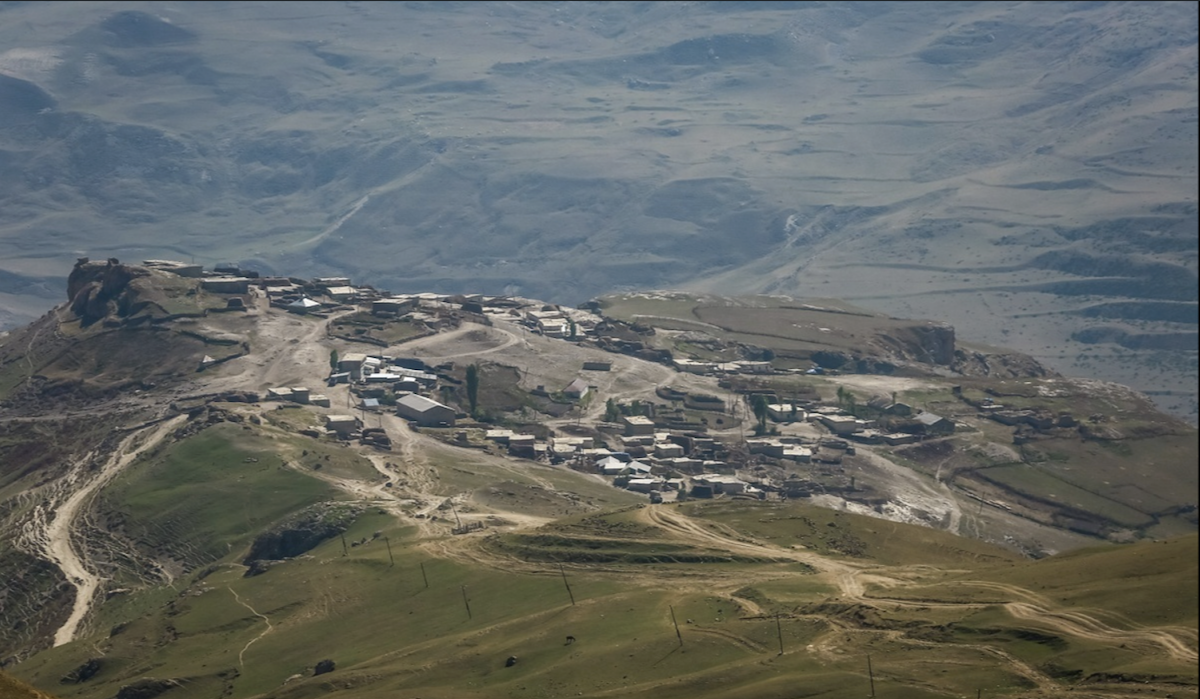
-
Wednesday, September 10, Azerbaijan. The U.S. trade mission to Azerbaijan is exploring the untapped potential of the Middle Corridor
● Presidential aide Hikmet Hajiyev met in Washington with Chairman of the U.S. Congress Foreign Affairs Committee Brian Mast and Senator Steve Daines. The meeting discussed the strategic significance of the memorandum of understanding signed on August 8 between Azerbaijan and the U.S., and the creation of a working group to draft a Strategic Partnership Charter between the two sides. Hajiyev highlighted the importance of Donald Trump’s simultaneous decision to repeal Section 907 and invited the participants to visit Azerbaijan.
Amendment 907 to the Freedom Support Act was adopted by the U.S. in the 1990s, prohibiting any direct U.S. assistance to the Azerbaijani government, accusing it of blockading Armenia during the first Karabakh war. The act itself was designed to provide economic support to former Soviet republics. Azerbaijan was the only post-Soviet state that did not receive direct U.S. aid. Over the years, different U.S. presidents suspended the amendment, but the Biden administration refused to do so. At the Washington meeting, Donald Trump announced its repeal.
● The ongoing U.S. trade mission to the South Caucasus aims to assess untapped opportunities of the Middle Corridor. This was announced by Natig Bakhishov, Executive Director of the U.S.-Azerbaijan Chamber of Commerce, at a briefing following the American business delegation’s visit to Azerbaijan. “Our route starts in Kazakhstan, passes through Azerbaijan, and ends in Georgia,” he said. According to him, U.S. entrepreneurs discussed freight transit prospects with the Baku Port administration, held meetings with the Ministries of Economy, Transport and Digital Development, and met with the Foreign Minister and the Chairman of the Customs Committee.
● On the importance of opening a transit road from Azerbaijan to its Nakhchivan exclave via Armenia and further into Turkey (“Trump’s Route”), Jeff Erlich, Director of the American Chamber of Commerce in Kazakhstan, said at a briefing in Baku: “For Azerbaijan and Kazakhstan, landlocked and limited by the Caspian, opening this route is vital for exports and imports, primarily of oil and petrochemical products.”
● “With peace established between Azerbaijan and Armenia, the U.S. government will be able to immediately begin stimulating investment in the region,” said Kenneth Angell, Executive Director of the U.S. International Development Finance Corporation (DFC), at the briefing after the U.S. business delegation’s visit to Baku. He stressed that August 8 marked an important step – the signing of an agreement on the first measures leading toward a peace treaty between Armenia and Azerbaijan. “Peace will lead to economic development, which in turn will increase prosperity. […] This mission is focused mainly on ports, transport, and logistics. The U.S. government is open to providing financial instruments for exports, feasibility studies, and investments in Azerbaijan,” Angell said.
● From Azerbaijan, the U.S. trade mission is heading to Georgia. “We will travel by land to assess the condition of highways, including along this section of the Middle Corridor. We will also evaluate customs procedures. The mission is scheduled to conclude on September 12,” said Natig Bakhishov.
● Turkey has created bilateral mechanisms with Azerbaijan, Kazakhstan, Uzbekistan, and Turkmenistan to explore further cooperation opportunities for more efficient use of the Middle Corridor’s potential. Turkey is also implementing a joint project with Iraq — the “Development Road,” which will connect the Persian Gulf with Europe through Turkey and be integrated into the Middle Corridor up to Central Asia. “The Middle Corridor could bring all participants significant benefits from the $700 billion annual trade turnover between Europe and China,” said Turhan Dilmac of the Turkish MFA’s Center for Strategic Studies. He noted that the agreements reached in Washington on August 8 between Azerbaijan and Armenia provide substantial support for the development of regional transport and communication links.
The Middle Corridor is an international transport route running through China, Kazakhstan, the Caspian Sea, Azerbaijan, Georgia, then into Turkey, and onward to Europe.
● Foreign Minister Jeyhun Bayramov received copies of credentials from the newly appointed EU Ambassador Mariana Kuyundzhich.
● In Riga, the fourth round of the Azerbaijan–Latvia strategic dialogue took place. The Azerbaijani delegation was led by Deputy Foreign Minister Fariz Rzayev, and Latvia was represented by Deputy State Secretary Ivars Lasis.
● Turhan Dilmac noted that freight volumes on the Baku–Tbilisi–Kars railway, part of the Middle Corridor, will increase from the current 5 million tons to 17 million tons annually by 2034.
● Azerbaijani MP Nizami Safarov explained the steps needed to finalize the peace treaty between Azerbaijan and Armenia, which was initialed by the leaders of both countries and Donald Trump at the historic Washington summit on August 8.
He emphasized that some foreign sources misinterpret the legal process. Initialing is an international legal procedure defined by the 1969 Vienna Convention on the Law of Treaties, of which both Azerbaijan and Armenia are parties. Article 12, “Consent to be bound by a treaty expressed by signature,” and Article 18, “Obligation not to defeat the object and purpose of a treaty prior to its entry into force,” apply to the peace agreement. According to Safarov, Armenia, as a bearer of international obligations under the convention, must remove constitutional provisions contradicting the agreement’s object and purpose.
Baku has long insisted that Armenia remove from its Constitution the clause containing territorial claims against Azerbaijan. Armenia calls this interference in its internal affairs, pointing out that the peace treaty itself contains a clause whereby both sides renounce territorial claims against each other.
● The Court of Appeal upheld the sentences of seven journalists convicted in the “AbzasMedia case.” None of their appeals were granted. As the judge announced the decision on September 9, the journalists chanted “Journalism is not a crime, corruption is a crime!” and “Ilham Aliyev, declare your income!” while holding posters with these slogans. Security tried to seize the posters, causing chaos in the courtroom. The verdicts were later confirmed to remain in force.
Ulvi Hasanli, founder and director of the outlet, editor-in-chief Sevinc Vagifgizi, Radio Free Europe journalist Farid Mehralizade, and economist Hafiz Babaly were each sentenced to nine years in prison. Journalists Nargiz Absalomova and Elnara Gasimova were sentenced to eight years, while AbzasMedia coordinator Mahammad Kekalov received seven and a half years. They were convicted on charges of smuggling, illegal entrepreneurship, money laundering, tax evasion, and others. The journalists deny the charges, saying they were punished for investigating high-level corruption, including within the Aliyev family.
● Radio Free Europe President Steve Capus called the ruling “unjust and unfounded.” “Farid Mehralizade should have been reunited with his wife and child. Instead, he remains behind bars, deprived of the justice he deserves,” Capus said.
Over the past two years, about 30 journalists and civic activists have been arrested in Azerbaijan on smuggling charges. None accepted the accusations, saying they were targeted for their professional activities and political reasons. According to local human rights groups, there are currently around 370 political prisoners in Azerbaijan.
● The Foreign Ministry expressed concern over Israel’s missile strike on Qatar. “Such actions may further aggravate regional tensions. We support Qatar’s sovereignty and territorial integrity and call for prioritizing diplomatic efforts to maintain stability in the region,” the MFA wrote on X.
● The Milli Majlis began reviewing a new draft law on the Internal Troops. Among other provisions, it would allow Internal Troops servicemen to carry out some police duties. However, the draft also proposes to ban the use of tear gas grenades (cartridges) aimed directly at people, and to prohibit water cannons during sub-zero temperatures.
● The trial of Ruben Vardanyan, Armenian citizen and former state minister of the unrecognized Nagorno-Karabakh Republic, continued. He is accused of torture, mercenarism, war crimes, terrorism, and other offenses. According to the state agency AzerTaj, “the court heard testimonies of victims and relatives of those killed during murders, abductions, torture, and other crimes committed during the occupation of Azerbaijani lands by Armenian forces.” The next hearing is set for September 16.
● Azerbaijan and Ukraine’s national football teams drew 1–1 in a World Cup 2026 qualifier in Baku.
Photo – a historic moment for the Baku–Tbilisi–Kars railway. It was taken on November 21, 2007, in Marabda, Akhalkalaki district, in the mountains of southern Georgia, at the moment of the official groundbreaking ceremony for the project. The event was held at the highest level. In the photo, from left to right, are the presidents of the three participating countries: Ilham Aliyev of Azerbaijan, Mikheil Saakashvili of Georgia, and Abdullah Gül of Turkey.
Photo: www.tabula.ge
-
Wednesday, September 10, Armenia. Meeting of representatives from Armenia, Iran, and India took place in Tehran
● A meeting of representatives from Armenia, Iran, and India took place in Tehran. During political consultations, diplomats discussed the implementation of the North–South Transport Corridor (NSTC), Yerevan’s proposed “Crossroads of Peace” project, and the use of Iran’s Chabahar port. The next round of talks in the same format will be held this year in Yerevan.
● The Armenia–Turkey negotiation process was discussed by Deputy Speaker of Parliament Ruben Rubinyan and Iranian Deputy Foreign Minister Vahid Jalalzadeh (pictured below). At the meeting in the Armenian parliament, the latest regional developments were also addressed, the National Assembly press office reported. Rubinyan stated that relations with Iran are based on mutual respect and are of great importance for Armenia.
● Armenia defeated Ireland 2–1 in Yerevan in the second round of the 2026 World Cup qualifiers. Armenia’s third goal (by striker Artur Serobyan) was disallowed, as Nair Tiknizyan, who provided the pass, was offside.
● Former minister Gnel Sanosyan has been appointed government representative to Lydian Armenia. Lydian Armenia, which manages the Amulsar mine, transferred 12.5% of its shares to the Armenian government in December last year.
● “There will be no corridor, nothing is done by force,” said Iran’s ambassador to Armenia, Mehdi Sobhani, once again addressing the issue of the route through Syunik. “Neither the peace treaty nor the trilateral document mentions a corridor,” he told journalists in the Armenian parliament, commenting on the Washington agreements between Yerevan and Baku.
● Inflation in Armenia is expected to be around 3% by the end of the year, according to the Central Bank governor.
● “[He (meaning Armenian Prime Minister Nikol Pashinyan – ed.) intends to implement a diabolical program, which is why he does not deviate from his previous rhetoric toward the Church, seeking to distract public attention and push through this program related to Armenia],” Bishop Hovnan Hakobyan of the Gugark Diocese of the Armenian Apostolic Church told NEWS.am.
● Parliamentary Speaker Alen Simonyan addressed the opposition, calling it “politically exhausted.” “You’ve been saying the same things for five years. Unfortunately or fortunately, your speeches are depleted; you no longer set or shape the agenda, and you never will,” he said. According to many experts and public opinion, the Armenian opposition is pro-Russian.
● “Russia’s presence in the South Caucasus is a vital necessity and a reality,” said Armenia’s first president Levon Ter-Petrosyan during a meeting at his residence with Russia’s ambassador to Armenia, Sergey Kopyrkin.

-
Wednesday, September 10, Georgia. The OSCE will not send an observer mission to the municipal elections because the invitation arrived too late
● The OSCE/ODIHR stated that the invitation to monitor the municipal elections scheduled for October 4 arrived too late — less than a month before the vote — making it impossible to organize an observation mission. The statement emphasized that OSCE/ODIHR had repeatedly reminded the ruling Georgian Dream party of the need to send the invitation in a timely manner.
● On Tuesday evening, another large protest took place outside the Georgian Dream campaign headquarters. Participants expressed outrage over the previous day’s attack on demonstrators by Georgian Dream representatives, who also beat women. “They didn’t scare anyone and they won’t be able to,” protesters declared. Read and watch more here
● Elene Khoshtaria, one of the leaders of the opposition Coalition for Change, on the beating of women protesters near the Georgian Dream HQ: “People in power who are in their right mind do not behave like this. Only cowards do. These people cannot wash away this disgrace.”
● The Interior Ministry announced an investigation into those responsible for offensive drawings and graffiti on the ruling party’s campaign banners. The investigation is proceeding under Article 187 of the Criminal Code, which covers damage or destruction of property and carries a penalty of up to 3 years in prison.
● The Public Defender’s office issued a statement regarding the incident outside the ruling party’s HQ. “Numerous cases of obstruction of journalists’ professional activities and physical violence against them were recorded. The exercise of the right to assembly should not lead to restrictions on the rights of others, nor to disruptions of campaign headquarters operations,” the statement said. The Ombudsman’s office urged protesters to refrain from such actions in the future, reminded the authorities of their obligation to create a safe environment for peaceful assemblies, and stressed the need for sufficient police presence. The office also addressed offensive remarks and gestures against women, urging both sides to avoid such conduct.
● The Georgian Young Lawyers’ Association (GYLA) stated that “on September 8, supporters of Georgian Dream physically attacked peaceful demonstrators and journalists on Melikishvili Avenue, and the police failed to respond effectively.” GYLA said this was not a clash of citizens with different opinions but a policy of the authorities based on violent methods, aimed against freedom of peaceful expression.
● Former president Salome Zurabishvili commented on the split within the opposition after three parties decided to participate in the October 4 municipal elections, while most of the opposition announced a boycott, declaring the current government illegitimate and unfit to hold elections. “These elections should not have been our issue at all — it was deliberately thrown in by Georgian Dream, and the opposition should not have split over it. I do not agree with those who are taking part in these elections. I also don’t think declaring a boycott is the right move. These elections simply don’t exist; they are nothing, an imitation. Yet opposition parties somehow got dragged into it. Unity is the most important thing we need; it’s what will strengthen attention and support from both America and the European Union.”
● Russian occupiers kidnapped another Georgian citizen from the area near the village of Zemo Khviti in the Gori municipality (in the Georgia–Ossetia conflict zone), the State Security Service reported. The EU Monitoring Mission hotline was activated. “Information has been shared with the co-chairs of the Geneva International Discussions and international partners. All available mechanisms have been engaged for the swift release of the detained Georgian citizen, for which the occupying power bears full responsibility,” the statement said.


-
Tuesday, September 9, Armenia. A meeting is being prepared between the special representatives of Armenia and Turkey, with one of the topics being the establishment of diplomatic relations between the two countries
● Armenia’s special representative, Deputy Speaker Ruben Rubinyan, told journalists about an upcoming meeting with his Turkish counterpart Serdar Kılıç in Armenia to discuss opening borders and establishing diplomatic relations. “We are optimistic,” Rubinyan said. He did not specify when and where the meeting will take place – whether in Yerevan or on the border – but promised to inform the public in due time.
● Twelve people were poisoned in the city of Armavir after eating mushroom soup and chicken at the restaurant Armavir Garden. Eight were hospitalized, and their condition is assessed as moderate, according to the Ministry of Health.
● A court upheld the detention of Russian dollar billionaire Samvel Karapetyan, accused of publicly calling for the seizure of power. The Anti-Corruption Court of Appeals rejected his defense’s request to lift pre-trial detention. The businessman was arrested for two months in June, and in mid-August his detention was extended by another two months.
● Georgian citizen Giorgi Kinoyan, who fought in the war in Ukraine, was detained in Armenia and may be extradited to Russia. He will remain in custody for 40 days, during which Moscow must submit the necessary documents to Yerevan. The decision will be made by an Armenian court. Local media report that Russia put Kinoyan on a wanted list through CIS channels. Georgia, no longer a CIS member, had no such information in its database. In Russia, Kinoyan was sentenced to seven years in prison. Read more here
● Opposition women deputies demanded an apology from ruling party faction secretary Artur Hovhannisyan. He tried to disrupt a briefing by MP Taguhi Tovmasyan, who said that “Nikol Pashinyan is not doing enough to bring back Armenian prisoners held in Baku.” The statement called his behavior “an act of intolerance and gender discrimination.” Tovmasyan herself said, “Hovhannisyan should take a drug test before every entry into parliament.” In response, Hovhannisyan suggested she “take a daily STD test so we can understand where her four houses came from.”
● Armenia may begin fining drivers for playing excessively loud music inside cars. Amendments to the law On Road Traffic Safety are being discussed in parliament. Deputies propose a $25 fine (in dram equivalent) for installing additional speakers beyond the factory set. Drivers would also lose 2 out of 13 possible penalty points. Among the initiators is Speaker Alen Simonyan.
● Tennis player Elina Avanesyan will represent Armenia at the Olympic Games. She told journalists in Yerevan that she started 2025 successfully but then suffered an injury and a severe infection. She is currently recovering.
● An Armenian Corner has opened at Iran’s National Library and Archives, showcasing around 60 books on Armenian history and culture.
● The mayor of Yerevan called for limiting mobile phone use among schoolchildren. “We want to create an environment in Yerevan’s schools where children study without distractions, make real friends, and feel that school is a space of knowledge and trust,” Tigran Avinyan wrote on Facebook.

-
Tuesday, September 9, Azerbaijan. North Macedonia expects direct supplies of Azerbaijani gas in the coming years
● A meeting was held at the Ministry of Foreign Affairs with representatives of the U.S. trade mission on the Middle Corridor. The meeting emphasized the historic significance of the discussions held on August 8 in Washington with the participation of the Presidents of Azerbaijan and the U.S. and the Prime Minister of Armenia, as well as the signed documents. It was stressed that these agreements not only contribute to regional peace and progress but also open great prospects for Azerbaijani-American relations, the press release said.
● North Macedonia expects direct supplies of Azerbaijani gas in the coming years, said the country’s Energy Minister Sanja Bozhinovska in an interview with the pro-government agency Report. According to her, Skopje sees Baku as a reliable partner in developing infrastructure in Southeastern Europe as a whole. She noted Azerbaijan’s participation in gasification and joint “green” projects.
● The trial continued in the criminal case against Martin Ryan, arrested on charges of spying for France, and Azad Mamedli, accused of treason. Both were detained in December 2023. According to the prosecution, French intelligence officers—later declared “personae non gratae” and expelled from Baku—recruited Ryan for secret cooperation and used him as an agent. Local media claim that after the spy network was exposed in Azerbaijan, the head of France’s external security agency, Bernard Émié, was dismissed. More details about the case here
● The trial also continued against a group of former leaders of the former unrecognized Nagorno-Karabakh Republic (NKR). They are accused of war crimes, terrorism, attempts to overthrow state power, and other serious offenses. According to the state agency AZERTAC, “the court examined documents related to episodes of violence and killings committed by Armenian military personnel and local residents against Azerbaijani civilians” in the period before the first Karabakh war. The court also reviewed evidence of mass unrest in 1988–1990 in Shusha, Khankendi, and Khojaly. The trial will continue on September 11.
● An Azerbaijani Tourism Bureau delegation is visiting Vietnam to promote the country’s tourism potential and opportunities. Meetings were held with the leadership of Vietnam’s National Administration of Tourism and the airline VietJet Air.
● Today in Baku, the national teams of Azerbaijan and Ukraine will face each other in the 2026 World Cup qualifiers. Commentators note that such a match is a rarity: the two teams have never met in official tournaments, and have only played twice before in friendlies—both times in 2006.
● The Electronic Security Service warns citizens about increasing fraud cases using the brand of the state postal service Azərpoçt. Citizens are receiving SMS, phone calls, and fake emails with false information about supposed upcoming payments. They are redirected to suspicious websites where they are asked to click “Receive Payment” and enter their bank card details, including CVV/CVC code and mobile number. Fraudsters then either withdraw funds directly or gain access to victims’ banking apps. Authorities urged users to stay vigilant.
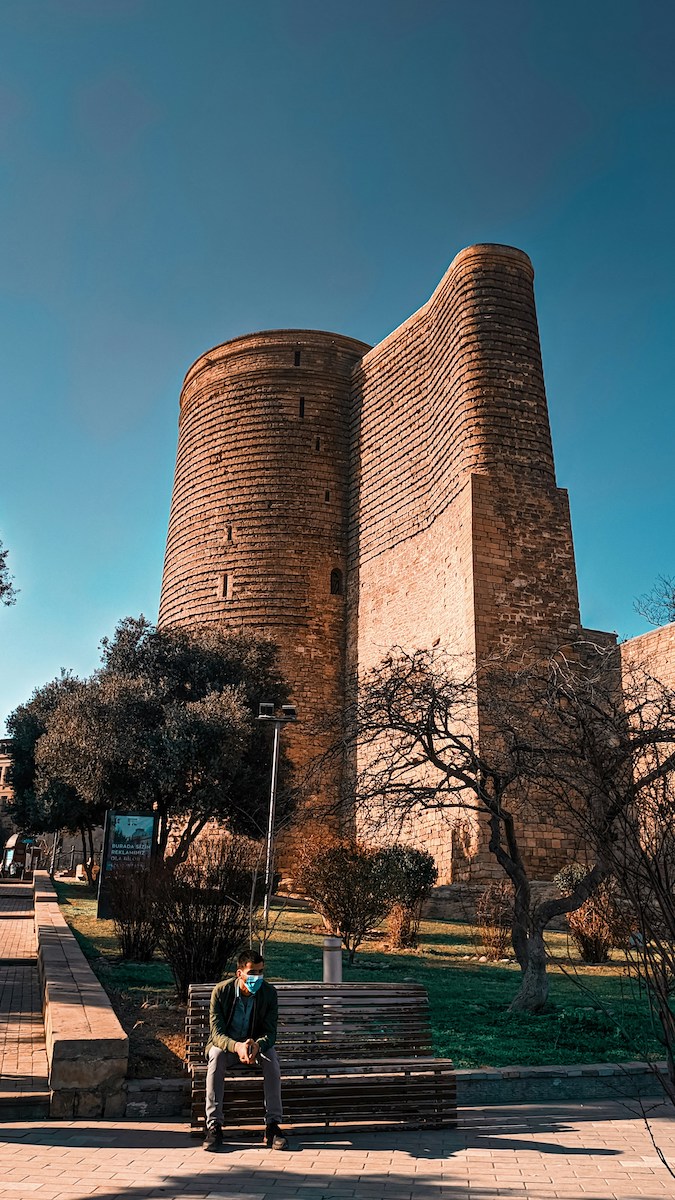
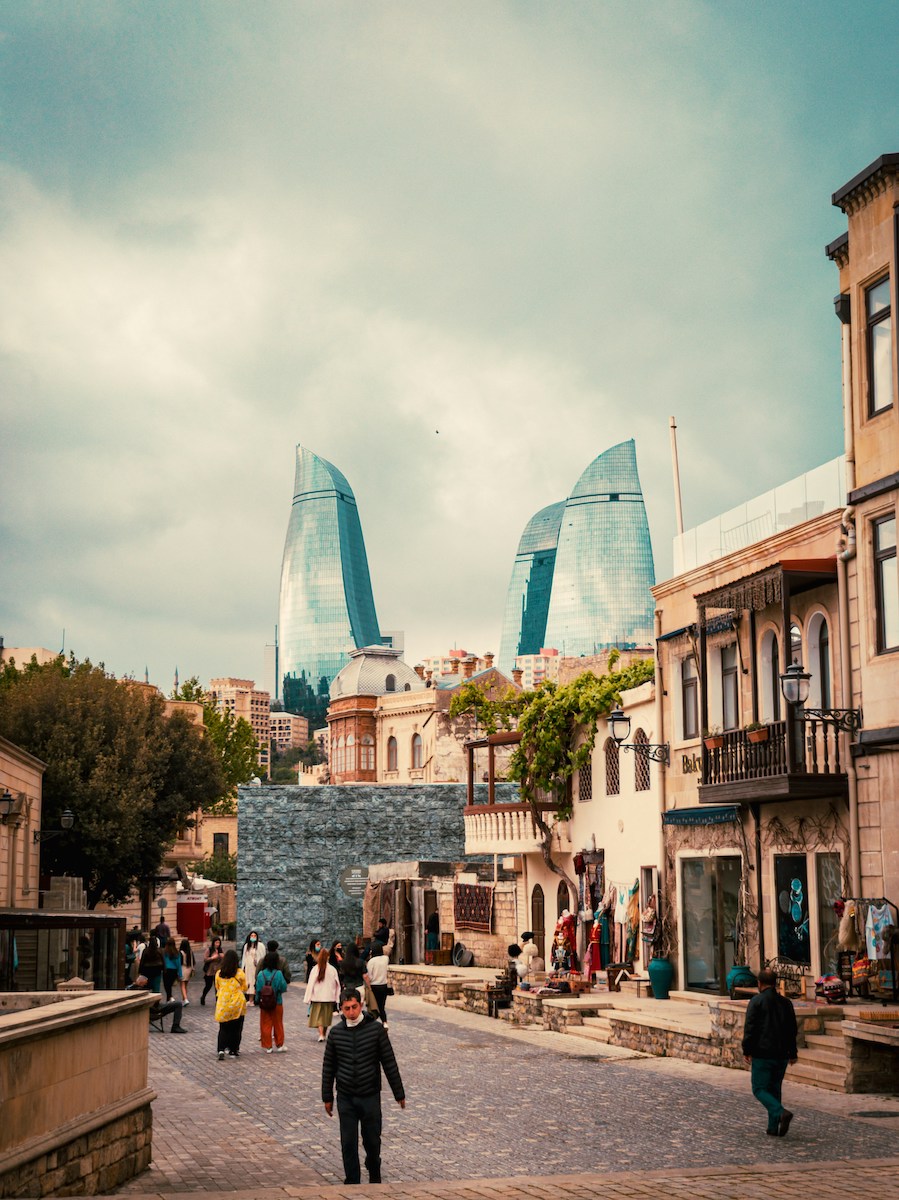
-
Tuesday, September 9, Georgia. Representatives of *Georgian Dream* attacked participants of the pro-European rally
● A rally is scheduled for 8:00 PM today near the campaign headquarters of Tbilisi Mayor Kakha Kaladze on Melikishvili Avenue. Kaladze has been nominated by the ruling Georgian Dream party as a candidate for mayor in the municipal elections on October 4. Most of the opposition is boycotting the elections, claiming the authorities are illegitimate and demanding new parliamentary elections. Only three opposition forces – Lelo–Strong Georgia, Gakharia for Georgia, and Girchi – have announced participation.
● On Monday evening, a major protest took place near Kaladze’s headquarters, which escalated into violent clashes. Multiple videos from the scene show members of Georgian Dream’s youth wing attacking pro-European protesters. Demonstrators said attackers carried rubber batons and threw metal barriers at them. As on previous days, party representatives, including staffers, openly insulted protesters while standing at the headquarters’ entrance.
● The Ministry of Internal Affairs said police managed to prevent escalation at the very beginning of the clashes near Kaladze’s headquarters. An investigation has been launched under Article 126 (group violence) of the Criminal Code. The ministry urged all demonstrators to act within the law and warned that otherwise police will take measures against them.
● Publica issued a statement of protest over the clashes, claiming that Georgian Dream members attacked two of its reporters, Aleksandre Keshelashvili and Keto Mikadze, and seized their phones.
● “Georgian Dream has nothing left. They live in fear: if you are not with them, you will be humiliated and beaten. The police don’t protect people. This will end very soon. These are their last days,” said well-known opera singer and pro-European protester Paata Burchuladze in an interview with Formula TV.
● If Georgia fails to comply with the European Commission’s recommendations, it could lose its visa-free regime with the Schengen area, a Commission representative told European Pravda. “The decision will be made after assessing the report submitted by Georgia as an EU candidate country,” he said. Read more here
● Georgian citizen Giorgi Kinoyan, who fought in the war in Ukraine, has been detained in Armenia and may be extradited to Russia. Local media report that Russia issued a CIS-wide wanted notice for him. He will remain in custody for 40 days, during which Moscow must submit the necessary documents to Yerevan. An Armenian court will decide on extradition. In Russia, Kinoyan was sentenced to seven years in prison. Read more here
● The Tbilisi City Court postponed the hearing of activist Nino Datashvili, who was arrested on charges of assaulting a bailiff. Datashvili could not attend due to health problems. Her lawyer said she suffers from spinal issues and has difficulty moving.
● European investigative outlet Follow the Money (FTM.eu) published materials about Georgia’s media landscape. The article claims that one of Georgia’s most popular TV channels, Imedi, engages in propaganda supporting the ruling elite. The channel allegedly warns viewers about a so-called “Global War Party” and claims the EU is trying to install a puppet government in Georgia. While the channel’s official owner, Georgian-American businessman Irakli Rukhadze, insists Imedi is editorially independent, its financial records suggest otherwise, FTM.eu reports.
● “Some former members of the ruling team who were expelled for committing crimes are now fueling radicalism in Georgia,” said Davit Matikashvili, chairman of the parliamentary committee on procedural issues from Georgian Dream. Read more here
● Prime Minister Irakli Kobakhidze of Georgian Dream announced that 384 cases of illegal arms trafficking were identified in the country over the past three months. “People, sometimes even minors, were walking the streets with weapons, which is causing serious concern in society. Work in this direction will continue,” he said.
A clash broke out on Melikishvili Avenue in Tbilisi outside the campaign headquarters of ruling Georgian Dream’s mayoral candidate Kakha Kaladze between the party’s youth wing members and protesters.
The confrontation began with verbal insults and escalated into physical… pic.twitter.com/WTpudqVHKm
— JAMnews (@JAMnewsCaucasus) September 8, 2025
-
Monday, September 8, Azerbaijan. Luke Coffey: “The construction of the Trans-Caspian gas pipeline perfectly fits into the U.S. foreign policy agenda, including the ‘Trump Route’
● “The construction of the Trans-Caspian gas pipeline perfectly fits into the U.S. foreign policy agenda, including the ‘Trump Route’ (TRIPP), which will connect Europe with Central Asia via the South Caucasus,” writes Hudson Institute fellow Luke Coffey.
The “Trump Route” is a road project designed to link Azerbaijan with its Nakhchivan exclave through Armenian territory, with the participation of American companies. The leaders of the three countries agreed on this transit project during a historic summit in Washington on August 8.
Coffey drew historical parallels with the Baku–Tbilisi–Ceyhan pipeline, whose construction was supported by U.S. President Clinton in the 1990s. “Donald Trump is helping Europe reduce dependence on Russian energy supplies, opening new markets for American energy companies cut off from Russia by sanctions, and strengthening U.S. ties with regional partners seeking integration with the West. For many years, Moscow and Tehran have resorted to diplomatic and political pressure to block the Trans-Caspian pipeline […] fearing loss of market share and political influence. The visit of Azerbaijani President Ilham Aliyev to Turkmenistan after his successful trip to Washington was no coincidence. It was a continuation of promoting the Trans-Caspian pipeline initiative. […] “Connecting this country to global energy flows would mark a strategic shift,” writes Coffey.
● Minister of Economy Mikayil Jabbarov is on a visit to Qatar, where he is discussing prospects for expanding business cooperation.
● Azerbaijan and Argentina signed a protocol on trade and economic cooperation in Buenos Aires. The Azerbaijani delegation was led by First Deputy Minister of Economy Elnur Aliyev.
● “Twenty-eight mass graves have so far been discovered in Azerbaijani territories liberated after 30 years of occupation by Armenian forces,” the State Commission on Prisoners of War, Hostages and Missing Persons reported. The remains of 218 people have been found, 60 of whom have been identified, with the remains handed over to their families.
● The state news agency AZERTAC has published a report from Karabakh, where in the regional capital Khankendi the building of the “Ministry of Foreign Affairs” of the former self-proclaimed Nagorno-Karabakh Republic (NKR) is being demolished. “The demolition of this building has symbolic significance, as for many years it was presented as one of the main symbols of the separatists. Pro-Armenian foreign politicians who visited the occupied territories came here, and illegal accreditation of foreign journalists was carried out. All this was a sign of disrespect for Azerbaijan’s state sovereignty,” AZERTAC wrote. In its place, by early 2027, a new three-storey administrative building will be constructed for the Main Department of Architecture and Urban Planning of the Karabakh region. Below are photos of the former “NKR MFA” building and the project of the new office building.
● In six districts of Istanbul, all mass events and rallies have been banned until September 11, including press conferences, festivities, the opening of stands, etc. The reason for this decision was not specified.
● Azerbaijan’s women’s 3×3 basketball team reached the European Cup final for the first time in Copenhagen, defeating Spain in the semifinal 17:12.
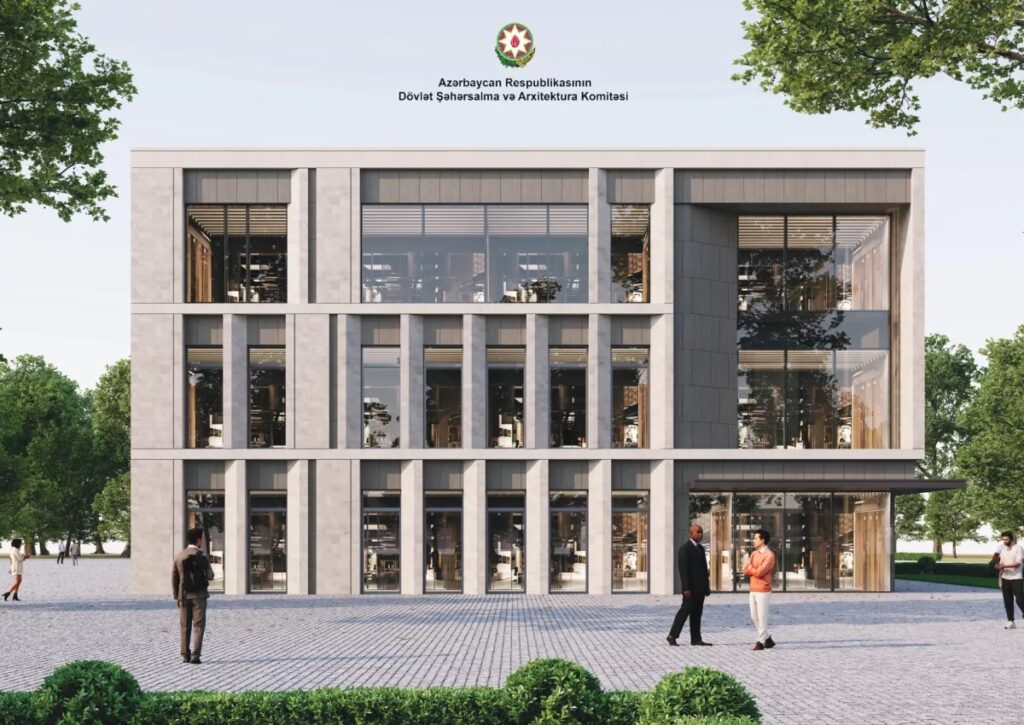

-
Monday, September 8, Armenia. Yerevan has confirmed an upcoming meeting between the special representatives of Armenia and Turkey
● Yerevan has confirmed an upcoming meeting between the special representatives of Armenia and Turkey. Ruben Rubinyan and Serdar Kılıç will hold talks in the coming days as part of the normalization process, Armenia’s Foreign Ministry announced.
● Russian dollar billionaire Samvel Karapetyan, who is under arrest in Armenia, has filed a defamation lawsuit against pro-government activist David Kalashyan. The activist had previously posted on social media about “loud revelations” and alleged “lawlessness” in the activities of Karapetyan’s company, Tashir Group. The billionaire is demanding a retraction and compensation of \$15,000 in dram equivalent. Karapetyan was arrested on charges of calling for the seizure of power in the country and recently announced plans to establish a new political party. Read more here
● “Yesterday I found a new friend”: Portugal football captain Cristiano Ronaldo posted a video on social media with Ruben, an Armenian boy who accompanied him onto the pitch before the 2026 World Cup qualifier against Armenia. The boy has speech and hearing difficulties and plays inclusive football. Meeting Ronaldo was his dream. “I hope everyone can fulfill their dream,” Ronaldo wrote under the video.
● Vladimir Putin congratulated the Union of Armenians of Russia on its 25th anniversary.
● Armenian grandmaster Robert Hovhannisyan scored two consecutive victories at the major international chess tournament “Grand Swiss” in Samarkand. In the third round, Hovhannisyan defeated Slovenia’s Vladimir Fedoseev, who ranks 21st in the updated FIDE ratings.
-
Monday, September 8, Georgia. Strong Georgia — Lelo” and “Gakharia for Georgia” have presented candidates for the elections, while the rest of the opposition continues to boycott
● Opposition parties Strong Georgia — Lelo and Gakharia for Georgia have presented joint candidates for the mayor of Batumi and heads of municipalities in the Adjara region in the upcoming October 4 local elections.
● Other opposition groups continue to boycott the elections. On Sunday, the opposition United National Movement called the vote a “Russian special operation” and again urged Georgians to unite and stage a mass protest on Rustaveli Avenue that day.
● Republican Senator Markwayne Mullin is strongly opposing the inclusion of the MEGOBARI Act in the National Defense Authorization Act (NDAA). The act envisions tough sanctions against Georgian Dream officials, accusing them of backsliding on democracy and adopting “Russia-style laws.” Earlier this year, the U.S. House of Representatives approved the MEGOBARI Act, but for it to become law it must pass the Senate and be signed by Trump. However, according to U.S. media, after Mullin met Senate Majority Leader John Thune, the act was excluded from the NDAA amendments package. In the past, Mullin has been sharply critical of Georgian Dream; in 2019, he even introduced a bill to sanction Georgia and officials accused of undermining U.S. business and government interests.
● Giorgi Kapanadze, deputy state representative in Dusheti, Tianeti, Mtskheta and Kazbegi, has been sentenced to pre-trial detention. He is accused of taking a large bribe. According to reports, Kapanadze promised a foreign citizen to reclassify land plots from agricultural to non-agricultural use in exchange for $400,000, receiving the first installment of $80,000 on September 5.
● A shooting took place late Sunday night at the “Qvevri” restaurant in Tbilisi. TV channel Pirveli reported that shareholder and well-known Georgian Dream propagandist Lasha Baslandze attacked the restaurant’s owner, Zurab Tibua. The likely motive was a financial dispute, according to the channel. The Interior Ministry confirmed it had opened an investigation into the illegal acquisition and possession of firearms.
● Two Georgian fighters were wounded in Ukraine during a combat mission, but their condition is stable. Their comrade Giorgi Partsvania reported this on social media, adding: “The unit continues to carry out its mission and push the enemy back in the Vovchansk direction! Glory to Georgia! Glory to Ukraine!”

-
Top stories in Azerbaijan, Armenia, and Georgia from 1-5 September, 2025



 Live
Live
















